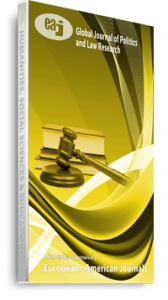This paper discusses the meaning of the phrase “arbitrary or unjustifiable discrimination” in the opening paragraph (the so-called “Chapeau”) of Article XX of the General Agreement on Tariffs and Trade (GATT). One of the most controversial phrases in the GATT, the curious apothegm has had a profound impact on how the Disputed Settlement Body (DSB) and the Appellate Body (AB) construct, interpret, and apply article XX. The drafters of GATT realized that certain circumstances may require barriers to trade; and to this end included Article XX in GATT. GATT article XX provides a litany of circumstances that allow a nation to abrogate the ordinary provisions of GATT. This litany of defenses is preceded by a paragraph explaining the over-arching criteria for such deviation from the ordinary provisions of the GATT; this is the so-called “chapeau” (from the French for “hat”) of article XX. The chapeau has been the subject of much debate, since it determines when the defenses provided for can be invoked. Of particular interest are the phrases “arbitrary or unjustified discrimination,” and “a disguised restriction” that appear in the chapeau. The body of case law developed by the DSB and AB regarding the curious phraseology of the Chapeau of Article XX hinges around the decision found in the US-Gasoline case (the so-called “Gasoline Rule”) and further elaborated upon in later cases such as US-Shrimp. Under this doctrine, when a member nation legislates in manner that would deviate from its commitments under GATT, and invokes article XX to justify such deviation, then said legal norm must pass three tests. First, it must be caught under one of the litany of defense given under the paragraph of article XX. Then it must be deemed to be neither “arbitrary or unjustified discrimination” nor “a disguised restriction”—in other words these two phrases are not interpreted as part of one species, but are seen as two separate criteria; meaning that the Chapeau is seen as introducing two tests. This decision has been hotly debated since its establishment. This paper analyzes the debate around this decision and finds that the AB in US-Gasoline acted with the utmost caution and impartiality in applying the Chapeau strictu sensu, and rejects the view that the AB was either ideologically partial to neo-liberal trade policy or apathetic towards environmental concerns.
Keywords: Arbitrary Discrimination, Chapeau of GATT Article XX, Unjustifiable Discrimination

